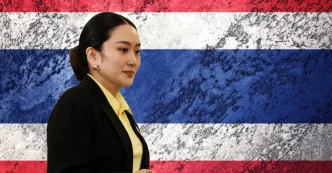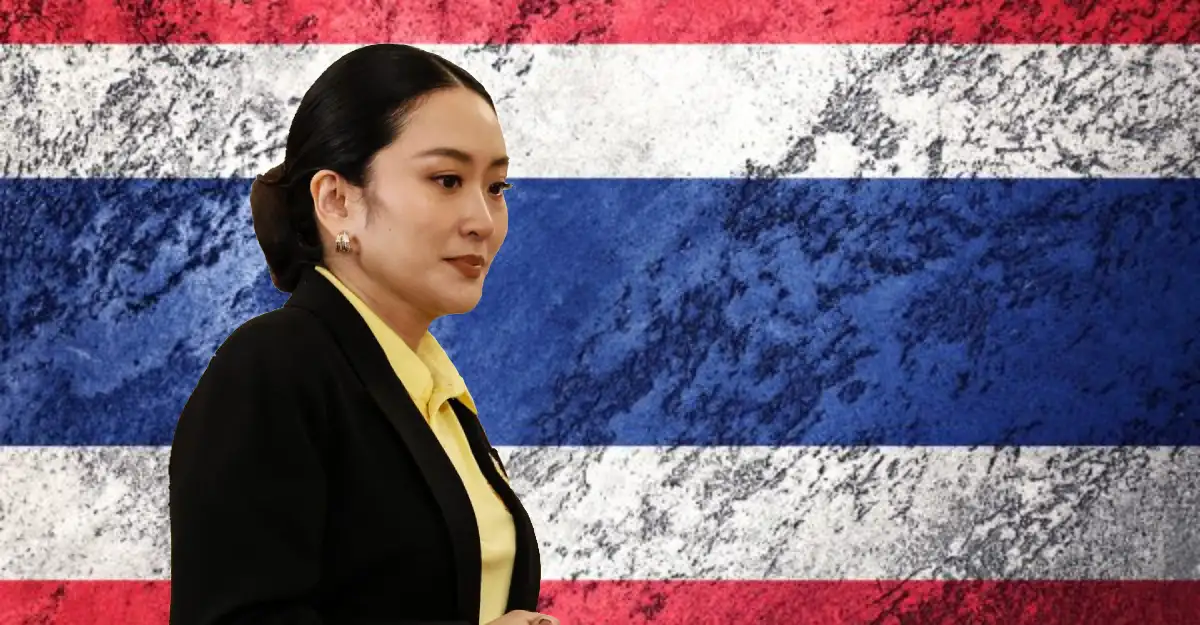In a pivotal decision that could shape the trajectory of Thailand’s fragile coalition government, the Democrat Party announced on June 20, 2025, that it would remain part of the ruling alliance following a marathon meeting of its executive committee in Bangkok. The decision comes at a time of heightened political uncertainty, fueled by concerns over the coalition’s stability and public trust in the government.
Executive Committee Reaches Consensus
The meeting, which lasted over three hours at the Democrat Party headquarters in Bangkok, was convened by party leader Chalermchai Sri-on, who also serves as the Minister of Natural Resources and Environment. The agenda focused on assessing the current political landscape and deliberating whether the party should continue its role in the coalition government led by Paetongtarn Shinawatra’s Pheu Thai Party. Chalermchai had faced mounting pressure from both within and outside the party, with public opinion split between calls for withdrawal and pleas to maintain stability.
Addressing the media before the meeting, Chalermchai dismissed rumors that the Democrat Party had been offered additional ministerial positions as an incentive to stay in the coalition. “No such discussions have taken place, and I am unaware of decisions made by other parties,” he stated, emphasizing the party’s independence in decision-making. He also acknowledged the diversity of opinions among party members and the public, assuring that all perspectives would be carefully considered.
Post-meeting, party spokeswoman Jenjira Rattanaphian confirmed that a consensus had been reached to remain in the coalition. “The decision today reflects the collective will of the executive committee,” she said, underscoring that the focus was on the broader political situation rather than personal or positional gains. Jenjira admitted to differing views during the discussions but stressed the party’s unity, noting that open dialogue on such sensitive issues was essential for a democratic process.
Backdrop of Political Controversy
The Democrat Party’s decision comes amid heightened scrutiny of the coalition’s leadership and stability. The Democrats’ choice to stay signals a pragmatic approach, possibly driven by a desire to maintain influence within the government and avoid triggering a broader political crisis. However, it also risks alienating segments of their voter base who have called for a withdrawal, citing discomfort with the coalition’s direction under Pheu Thai’s leadership. The party’s leadership has insisted that their focus remains on serving the Thai people, with Jenjira reiterating that any future decisions would prioritize public interest over partisan gains.
Coalition Dynamics and Broader Implications
Thailand’s coalition government, formed after the 2023 general election, has been a tenuous alliance of diverse political factions, including Pheu Thai, the Democrat Party, and smaller players like the Chartthaipattana Party. The Democrats, one of the country’s oldest political entities, have often played a kingmaker role in such arrangements, leveraging their influence to secure key policy concessions. Their continued participation in the coalition is likely to provide a much-needed vote of confidence for Paetongtarn, who has faced criticism over her handling of economic challenges.
Elsewhere in the coalition, responses to the current situation have varied. The Chartthaipattana Party has publicly backed Paetongtarn, emphasizing the importance of national unity in the face of political challenges. Meanwhile, the United Thai Nation Party has adopted a more cautious stance, indicating a preference for direct talks with the Prime Minister before committing to any position. These differing approaches highlight the fragile nature of the coalition, where individual party interests often clash with the need for unified governance.
For the Democrat Party, remaining in the coalition offers both opportunities and challenges. On one hand, it ensures their relevance in shaping policy, particularly on issues like environmental protection, where Chalermchai has been a vocal advocate. On the other, it ties them to a government grappling with public distrust. Political analysts suggest that the Democrats may be banking on their ability to negotiate stronger positions or policy wins in exchange for their loyalty, though no such discussions were confirmed during the recent meeting.
Public Reaction and Political Sentiment
Public opinion on the Democrat Party’s decision is predictably divided. In Bangkok, where the party has historically enjoyed significant support, some residents expressed relief at the prospect of continued stability. “We’ve had enough political upheaval in recent years. The Democrats staying in the coalition might prevent another crisis,” said Somchai, a 45-year-old shop owner in the capital’s Siam district. Others, however, view the decision with skepticism, accusing the party of prioritizing power over principles. “They should have taken a stand against these controversies. Staying in makes them complicit,” argued Nittaya, a university student who joined recent protests calling for government accountability.
Social media platforms, particularly X, have been abuzz with reactions, ranging from cautious optimism to outright criticism. Posts from influential Thai commentators suggest a growing frustration with the coalition’s inability to address systemic issues like economic inequality and corruption, with some users questioning whether the Democrats’ decision reflects genuine commitment to reform or mere political survival. While these sentiments are not universally representative, they underscore the challenges facing the party as it navigates an increasingly polarized political landscape.
Historical Context of the Democrat Party’s Role
Founded in 1946, the Democrat Party is one of Thailand’s most enduring political institutions, with a legacy of advocating for democratic principles and economic liberalization. It has been a key player in numerous coalition governments, often balancing progressive reforms with conservative values rooted in national tradition. However, its influence has waned in recent decades, particularly following the rise of populist movements like Pheu Thai and the political turmoil surrounding military coups and mass protests.
The party’s decision to join the current coalition was itself controversial, given its historical rivalry with Pheu Thai and its predecessor parties associated with the Shinawatra family. Critics argued that aligning with Paetongtarn’s administration represented a departure from the Democrats’ core ideals, while supporters framed it as a necessary compromise to ensure political stability. The latest decision to remain in the coalition is likely to reignite these debates, with long-term implications for the party’s identity and voter base.
Looking Ahead: Stability or Stagnation?
As Thailand grapples with internal divisions, the Democrat Party’s choice to stay in the coalition government raises critical questions about the future of Thai politics. Will their presence help stabilize a coalition under siege, or will it further entrench a system many perceive as disconnected from public needs? For now, the party appears committed to working within the system, prioritizing dialogue and consensus over confrontation. Yet, as Chalermchai and his executive committee navigate these turbulent waters, the voices of the Thai people—both in support and dissent—will undoubtedly shape the path forward. Whether this decision marks a step toward enduring stability or merely delays an inevitable reckoning remains an open question, one that will play out in the weeks and months ahead.















